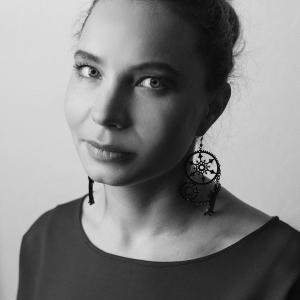In the years before mass censorship in Russia, the country’s science journalism community thrived. During this time, in 2016, a group of science communicators – officials from university science communication departments, researchers, sociologists, and more – myself included, founded the Russian Association of Science Communication (AKSON).
The first Russian network of its kind, AKSON brought these science communicators together from across the country to foster professional growth, forge stronger links between science experts and society, and support independent science journalism. All as the general media environment was disintegrating around us.
Following President Vladimir Putin’s return to the Russian presidency in 2012, and especially after the start of the full-scale invasion of Ukraine last year, many Russian science journalists have quit the profession entirely, and AKSON itself closed its doors in late 2022. But others have found new support in communities of science communicators abroad, building on the support AKSON provided during its six years in existence.
Science journalism in Russia
Online media historically enjoyed high readership and a strong reputation in Russia. During the country’s parliamentary elections in December 2011, for instance, 1 million unique visitors a day visited Gazeta.Ru. At the same time, outlets including Gazeta.Ru, Lenta.Ru, and state-owned RIA Novosti competed with one another in their science news coverage.
However, in late 2013 and early 2014, after the so-called “castling” – a reference to Putin's return to the Russian presidency – online media was effectively shut down. The government placed major outlets like Gazeta.Ru and Lenta.Ru, as well as smaller ones under some form of direct censorship, most notably by replacing owners and editors-in-chief with individuals loyal to the Kremlin. Many established science writers left these outlets to launch their own initiatives. Others left journalism altogether.
“Some of these journalists started independent digital science magazines that reported high quality research news, but which mostly abstained from covering socio-political aspects in order to maintain relative independence from authorities,” said Olga Dobrovidova, a former science and environmental reporter at RIA Novosti.
The science journalism community weakened and readership of science news declined.
Connecting and passing the torch
Dobrovidova’s experience as an MIT Knight Science Journalism Fellow inspired her to prepare other Russian journalists for similar experiences. AKSON supported this aim with the Russian Forum on Science Communication, an initiative run annually starting in 2017 to host science journalism events and panels covering topics ranging from multimedia reporting to ethical considerations around funding.
AKSON also established professional awards to promote science coverage, including the Russian Science Journalist of the Year honor, which in turn served as a selection point for the European Science Journalist of the Year award, giving Russian science journalists an international stage to showcase their journalism. Maria Pazi from the now-defunct magazine, Russian Reporter, won the European award in 2020, becoming its first ever Russian winner. The following year, Russian journalist Polina Loseva won second place in the European award.
AKSON also ran a national scientific press release distribution system known as “Open Science” which enabled universities and research institutions to disseminate news among subscribers.
Between 2018 and 2021, AKSON awarded grants to science journalists, to support coverage of metrology, new agricultural technologies, and to highlight issues in the Baikal natural area. The Association also regularly conducted educational workshops for students and young journalists, both online and in-person.
Consequences of the Russian invasion of Ukraine
AKSON stood at the forefront of an emerging generation of Russian science journalists despite ongoing censorship. That changed in February of 2022 with the full-scale Russian invasion of Ukraine, and AKSON officially ceased its operations at the end of last year.
What we thought was just the beginning for a new era of science journalism in Russia turned out to be the end due to the mass crackdown of independent media and journalism in the year following the invasion.
We nevertheless believe AKSON’s work wasn’t conducted in vain. Today, former members still in Russia exist as an informal network who support one another, and prop up science reporting. Others have fled Russia, and joined the boards of international organizations like the European Federation for Science Journalism and the Public Communication of Science and Technology Network. Former AKSON member Natalia Paramonova, with a team of international journalists, won the European Climate Grant, while Polina Loseva has become a contributor with the British Medical Journal.
“AKSON boosted the development of science communication in Russia. It gave us a strong identity that helped us all – journalists and communicators – not to give up amid a very hostile political and social environment,” said Dr. Egor Zadereev, one of Russia’s most prominent scientists.
AKSON helped foster more vibrant science journalism in Russia. Despite having shuttered, its impact remains a critical, enduring legacy.
The author was AKSON's first president, from 2018-2020. She is grateful to Olga Dobrovidova, the AKSON's second president, for her advice and support in preparation of this article.
Photo via Pexels by Chokniti Khongchum.
This article was updated on April 27.


